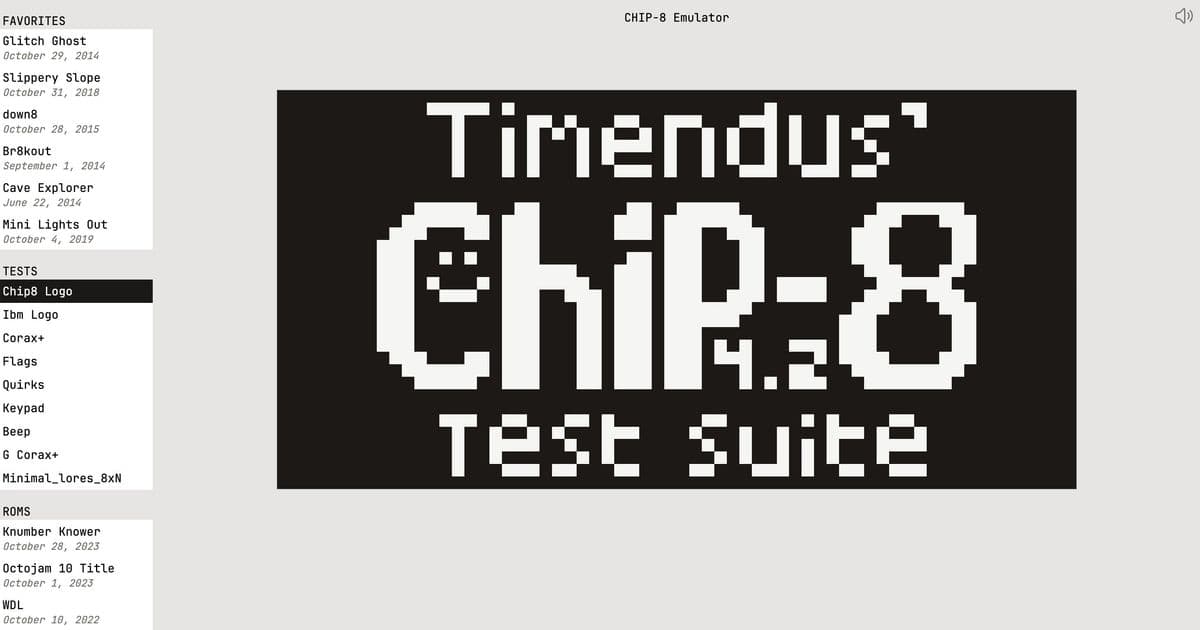Discover how CHIP-8—a forgotten virtual machine from the 1970s—is experiencing a renaissance as an educational powerhouse. Developer John Earnest's interactive platform at chip8.cool transforms retro computing into an accessible playground for learning low-level programming concepts. This revival proves that simplicity remains timeless in tech education.
The 8-Bit Time Machine
In the mid-1970s, before Python tutorials and bootcamps, engineer Joseph Weisbecker created CHIP-8—a minimalist virtual machine for COSMAC VIP microcomputers. With only 35 opcodes, 4KB of RAM, and a rudimentary display, it enabled hobbyists to program games and utilities without wrestling with complex hardware. Decades later, this forgotten technology has found new life through developer John Earnest's chip8.cool, an interactive playground that makes low-level programming tangible for modern learners.
Octo: Breathing New Life into Retro Tech
At the heart of chip8.cool lies Octo—Earnest's browser-based toolkit that resurrects CHIP-8 with contemporary enhancements:
- High-level assembler with syntax highlighting
- Real-time emulator visualizing CPU registers and memory
- Debugging tools for stepping through instructions
- Gamepad API integration for testing input handling
- Shareable permalinks for collaborative tinkering
Unlike abstract coding exercises, Octo forces developers to confront hardware constraints: sprites flicker when drawn rapidly, collision detection requires bitwise math, and every byte counts in its tiny memory space. As Earnest notes, "CHIP-8 strips away modern abstractions to reveal how computers actually think."
Why Primitive Tech Matters in 2024
CHIP-8's revival isn't nostalgia—it's a masterclass in pedagogical efficiency:
- Concept Compression: Its 35-instruction set teaches core programming concepts (loops, conditionals, memory addressing) in hours rather than weeks.
- Visible Machinery: The live register/memory viewer demystifies the fetch-decode-execute cycle better than any textbook diagram.
- Instant Gratification: Within minutes, beginners can manipulate pixels and build Pong clones—rewarding experimentation.
Educators increasingly leverage such constrained systems to bypass "framework fatigue." As MIT's Nick Montfort observes in Exploratory Programming for the Arts and Humanities, "Limitations focus creativity."
The Byte-Sized Future
While CHIP-8 won't power tomorrow's AI, its resurgence signals a broader trend: developers craving tactile understanding in an age of cloud abstractions. Platforms like Octo prove that sometimes, the deepest learning comes from rebuilding the past—one pixel at a time. As new programmers tweak Space Invaders clones on chip8.cool, they're not just coding—they're touching the DNA of computing.
Source: chip8.cool by John Earnest

Comments
Please log in or register to join the discussion